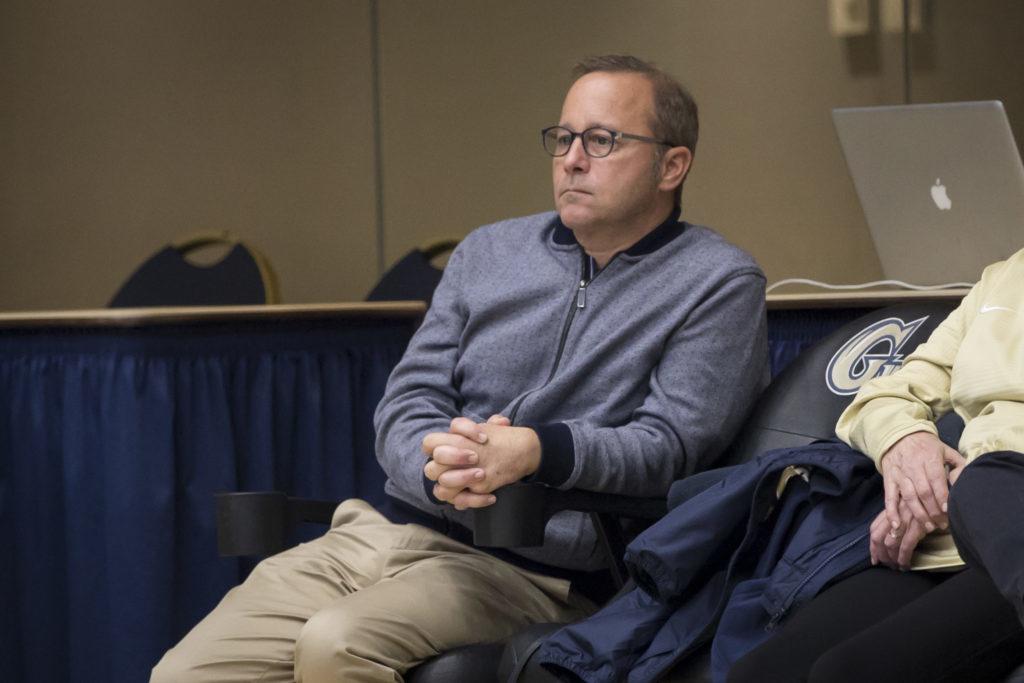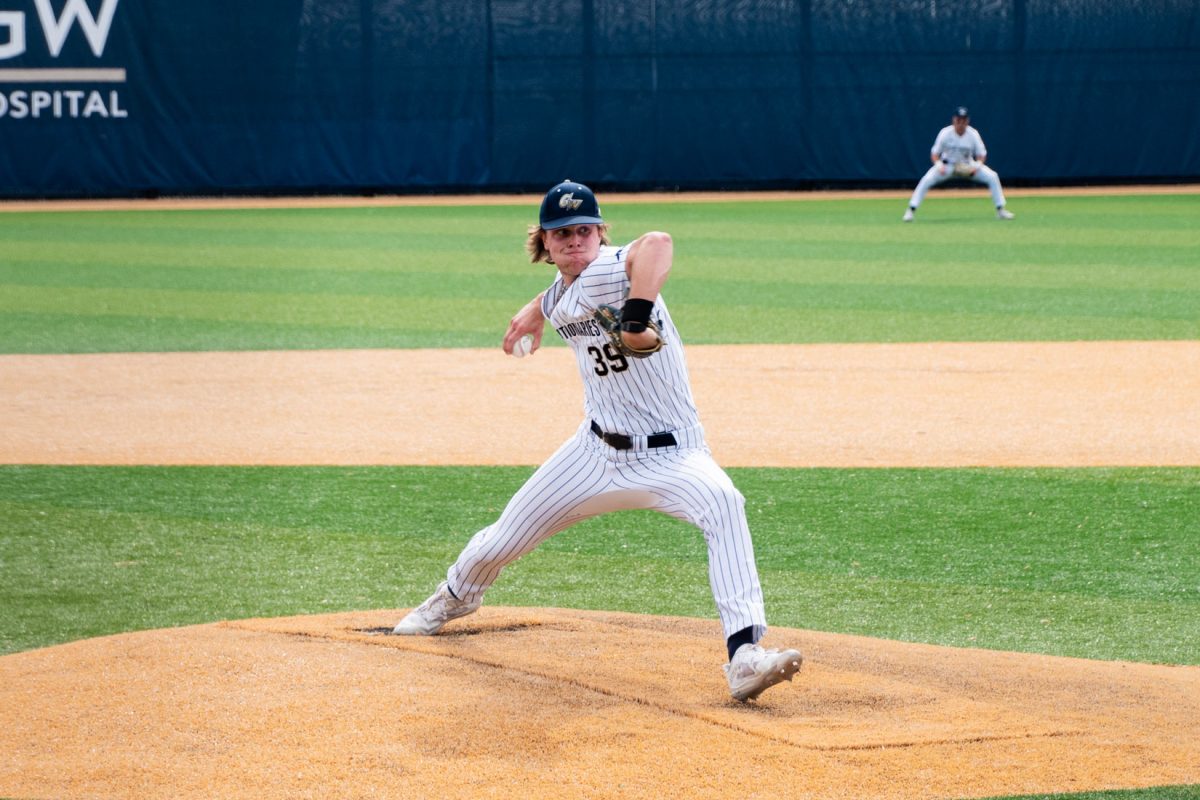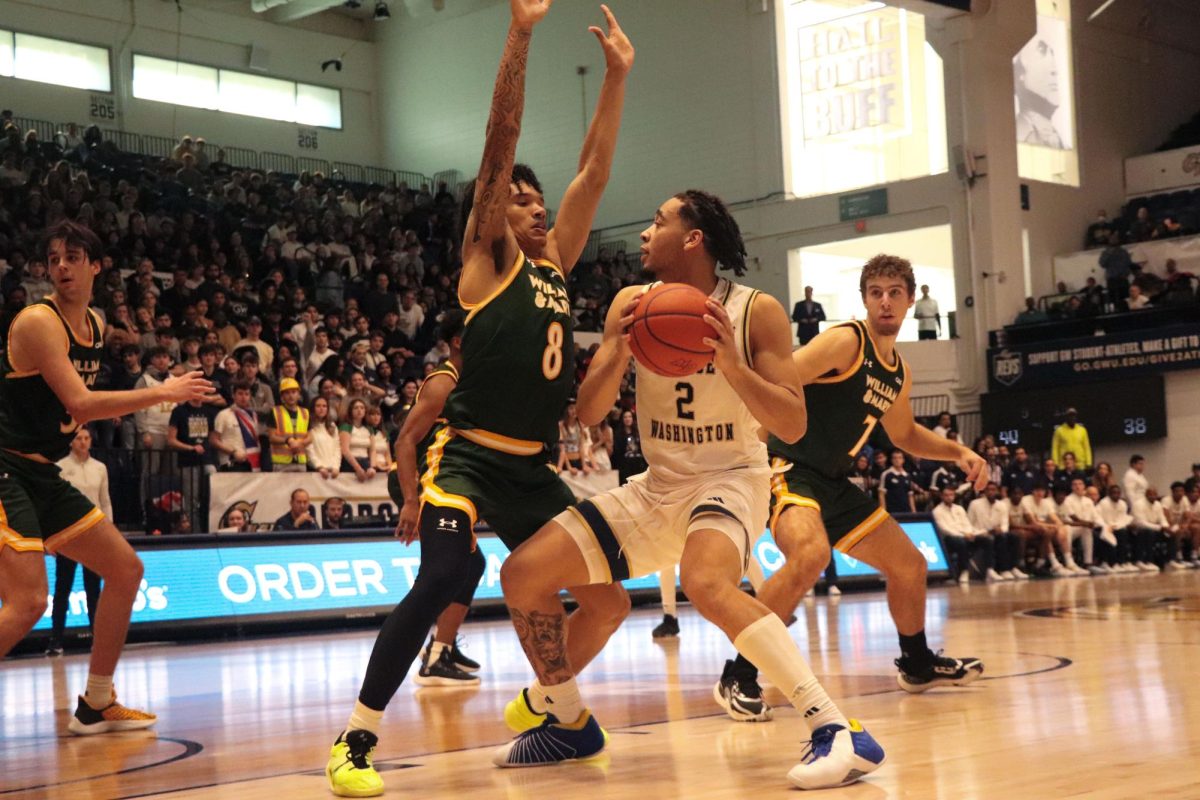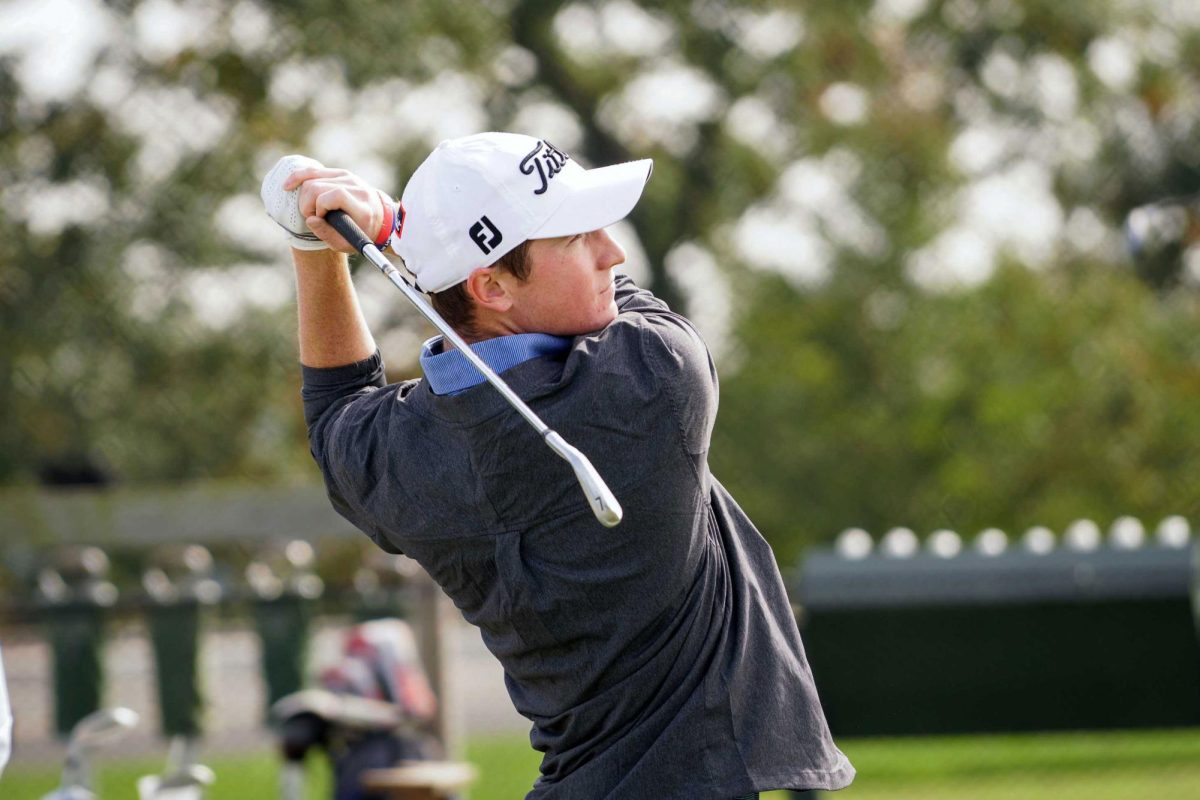A dueling pair of lawsuit filings have revitalized the battle over a 2017 pay discrimination suit against GW as the University looks to quash allegations that it deprived an athletics department employee of fair pay on the basis of sex.
In a 44-page motion filed Friday, the U.S. Equal Employment Opportunity Commission said the University failed to argue a “legitimate” and “nondiscriminatory” reason for its previous conduct toward Sara Williams, the former executive assistant to the athletics director, in their November motion for a summary judgment denying the claims. An earlier November motion by GW lawyers rejected Williams’ claims, saying her compensation was determined fairly.
Both motions ask District Court Judge Colleen Kollar-Kotelly to rule in their favor without a trial.
The EEOC alleges GW paid Michael Aresco – a former “special assistant” in the athletics department – nearly twice Williams’ salary for jobs with equal in work, and the University misrepresented the extent of Williams’ and Aresco’s responsibilities to justify what the commission alleges is sex-based discrimination.
“Sex bias in the Athletics Department resulted in devaluing Williams, despite her skill, qualification and responsibility, by characterizing and treating her like an office assistant,” the commission’s motion states.
The EEOC’s motion states Williams began working under former Athletics Director Patrick Nero in 2014 for about $40,000 a year, a position where she managed three department budgets and contracted administration, product management and human resources. Two years after hiring Williams, Nero hired Aresco as a “special assistant” and planned to give him Williams’ responsibilities but for a salary of $77,000, according to the filing.
In their own November motion, GW refuted claims that the salaries were disproportionate and argued there is “no dispute” that Aresco’s job required “substantially greater” skill, effort and responsibility than Williams’ job, which GW claims accounted for the higher salary. The University’s motion claims Williams’ work was “primarily clerical,” and she exercised no planning or oversight over athletics department budgets.
“Simply put, Williams worked as the assistant to the athletics director, while Aresco worked as an assistant athletics director,” GW’s November motion states.
GW claimed Nero and other officials involved in setting Aresco’s salary defended his pay because it was a “lateral” move from his former position in their November motion. Aresco started working in the athletics department for the first time as an administrator before being hired for the special assistant position, according to the 2017 EEOC complaint in District Court.
But the EEOC’s motion last week alleges that Human Resources Partner Kaithlyn Kayer concluded Aresco’s pay was too high for the position and signed off on it anyway because she knew Nero was set on that amount. Officials did not consider raising Williams’ pay after deciding on Aresco’s “inflated” salary despite their similar job descriptions, the motion states.
“That does not explain why, after [GW] decided to pay Aresco $77,000 per year to perform work equal to Williams, [the] defendant did not increase Williams’ pay in any amount so that she received equal pay for equal work,” the motion states.
The motion alleges Nero tried to “eliminate” Williams’ position once Aresco was hired, redirecting “high profile” jobs to Aresco to justify his higher pay – an effort that was “unsuccessful” because Williams would have to take over tasks that he lacked the understanding to complete.
Nero resigned in December 2017 after leading the athletics department for almost seven years, a choice that wasn’t related to the lawsuit, athletics department spokesman Brian Sereno said at the time. A year later, Nero came under fire for allegedly engaging in “strange” social relationships with students, giving certain athletes preferential treatment and drinking excessive alcohol on trips with staff members in the athletics department, according to a 2018 Deadspin article.
The department’s finance director testified she was “hand-holding” Aresco during budget-related tasks. GW said Aresco spearheaded responsibilities like the management of a Nike contract and a plan to decrease GW’s athletics budget but some were actually executed by Williams, according to the EEOC’s motion.
EEOC claims that under Aresco’s watch, one employee went without pay for more than a month.
“Aresco did not have the skills necessary to do the work, did not make sufficient effort to learn how to do the work and did not accept responsibility for completing the work,” their motion states.
GW alleges three days before Williams filed her initial 2017 complaint with the EEOC, she was reprimanded by Nero for “breaching confidentiality” and “spreading a rumor” about an opposing assistant basketball coach’s alleged infidelity.
In their response, the commission makes no mention of the specific incident but alleges Nero accused her of “breaching confidentiality” at one point to “force her out” and maintained “concerns” about Williams’ discretion since her hiring.
The motion states once a male joined the department and did administrative work, GW treated and valued that work not as clerical, but as “high-level” support provided by an “advisor” or “liaison.” Later that year, Williams quit after realizing the University would not stop or remedy the “disparate pay” and “sex discrimination” in the department, the motion states.
“The undisputed material facts show that defendant engaged in discriminatory pay practices and deprived Williams of equal employment opportunity in violation of Title VII,” the motion states.







